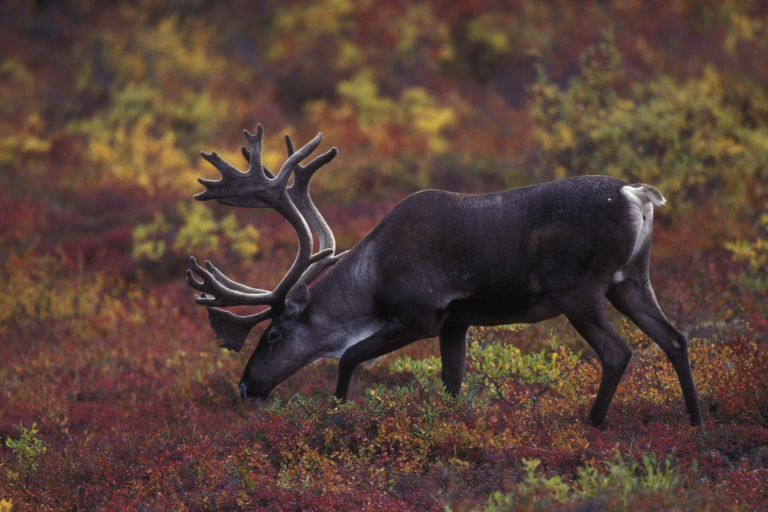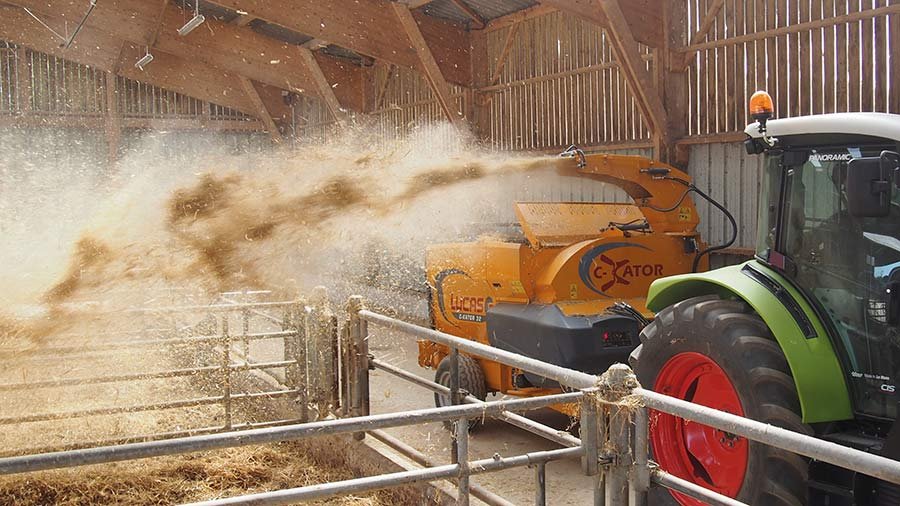- A new review paper finds that climate change is pounding insects in a wide variety of ways all over the world.
- Because insects are so sensitive to temperature change, climate change is impacting them directly, including potentially decreasing their ability to breed.
- But climate change is also causing insects to change their behavior as it shifts seasonal beginnings and ends, risking that insects will act out of sync with the rest of the environment on which they depend. Climate change-intensified drought, extreme precipitation, lengthening heat waves, and fires are also harming insects.
- The best way to protect insects? Combat climate change and safeguard micro-habitats.
What threatened animals do you think of when you see the words “climate change”? Polar bears, corals, sea turtles, or maybe pikas? All accurate. But you probably don’t think “insects.” Well, maybe you think “monarch butterflies,” but insects — as a whole? Now scientists are saying it may be time for us to update our climate change posterchild list.
A new 37-page review paper with 80 co-authors in the journal Ecological Monograph finds that climate change is already pounding insects the world over in a huge variety of ways — and a bug’s life will only get harder as the world warms, the researchers say.
“The potential implications for nature and humanity are enormous and frightening,” explains lead author Jeffrey Harvey, a biologist with the Royal Netherlands Academy of Arts and Science. “Insects critically provide a number of ecological services that underpin the health of the human material economy.” Think of everything from pollination to pest control to soil health.
Harvey and colleagues’ new paper digs into the myriad ways climate change is impacting insects. First and foremost, insects are more sensitive to temperature change than many other groups of animals. As ectotherms, like reptiles and amphibians, insects control their body temperature via the ambient air.
“If it gets too hot, and [insects] are unable to ride out heat waves in micro-habitat refuges, they may be exposed to temperatures that either kill many of them, or which render them sterile,” Harvey explains.
Several studies have found that increased heat, while not killing some insects outright, can damage or destroy insect sperm. A 2018 study, for example, found that laboratory-induced heatwaves wreaked havoc on flour beetles’ sperm, while repeated heat waves made them “almost sterile,” according to the paper in Nature Communications.
There is also evidence that increasing temperatures have led to some insects shrinking in body size, which could impact their long-term survival.
Most of the world’s insects live in the tropics. Indeed, tropical insects likely make up the most biodiverse animal group on the planet — and potentially the most abundant. Most species haven’t even been given names or described by science. But tropical insects are even more imperiled by climate change than temperate ones, with some likely to disappear before we even recognize they exist.
“Tropical insects have evolved under climates with narrower seasonal variance,” explains Carol Boggs, a paper co-author and entomologist at the University of South Carolina. As a result, most tropical insects are simply not evolved for extreme climate swings, meaning any significant rises in temperature or changes in rainfall could be devastating.
But since climate change is happening everywhere, it’s also affecting insects everywhere and in many ways: Climate change doesn’t only impact insect bodies, but their behavior, food supply and habitat too. Rising temperature and other whiplash weather fluctuations, including increased seasonal instability, can cause insects to hatch too early — putting them out of sync with plant leaf out and food supplies — or be born too late — leaving little time to mature before changing inhospitable weather sets in; even their metamorphoses can be thrown off.
Boggs has been studying Rocky Mountain butterflies in Colorado since the late 1970s. She says she’s seen the adult period of two butterflies, Gillette’s checkerspot (Euphydryas gillettii) and the Mormon fritillary (Speyeria mormonia), move a week earlier.
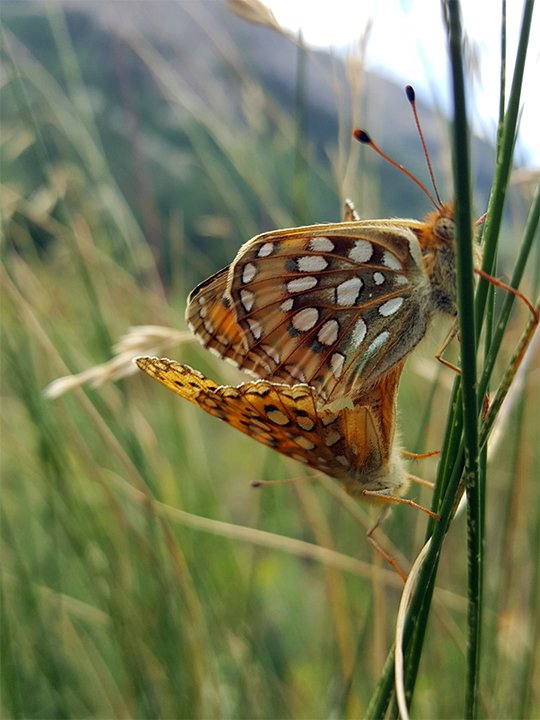
“This timing is driven by a combination of snowmelt timing and June maximum temperatures, both of which have shifted,” she says, noting that summer maximum temperatures are already 1.5-2° Celsius (2.7-3.6° Fahrenheit) warmer than when she launched her work decades ago. Upcoming research by Boggs’s undergraduate student, Nimué Shive, is showing that even more insect species are pupating into adults earlier than they did several decades ago.
These timing changes can mess with an insect’s survival ability. Young may hatch before the flowers they depend on bloom, or vice versa. And insects aren’t the only species to suffer from these changes: the many other species that depend on insects can suffer too. Baby birds, for example, may hatch too late, missing out on the insect booms of spring. So, they starve.
“Insect declines are probably a major factor in the ongoing decline amongst many temperate birds observed over the past several decades,” Harvey says.
Overall, climate change is playing havoc, throwing birth, maturation and migration timing out of whack, imperiling the many and complex ways insects interact with plants and other animals.
But that’s not all: Insects are also facing more and worsening extreme weather, just as we are. Flooding, drought, long-term heat waves and fires can wipe out whole generations of insects or destroy the resources they depend on.
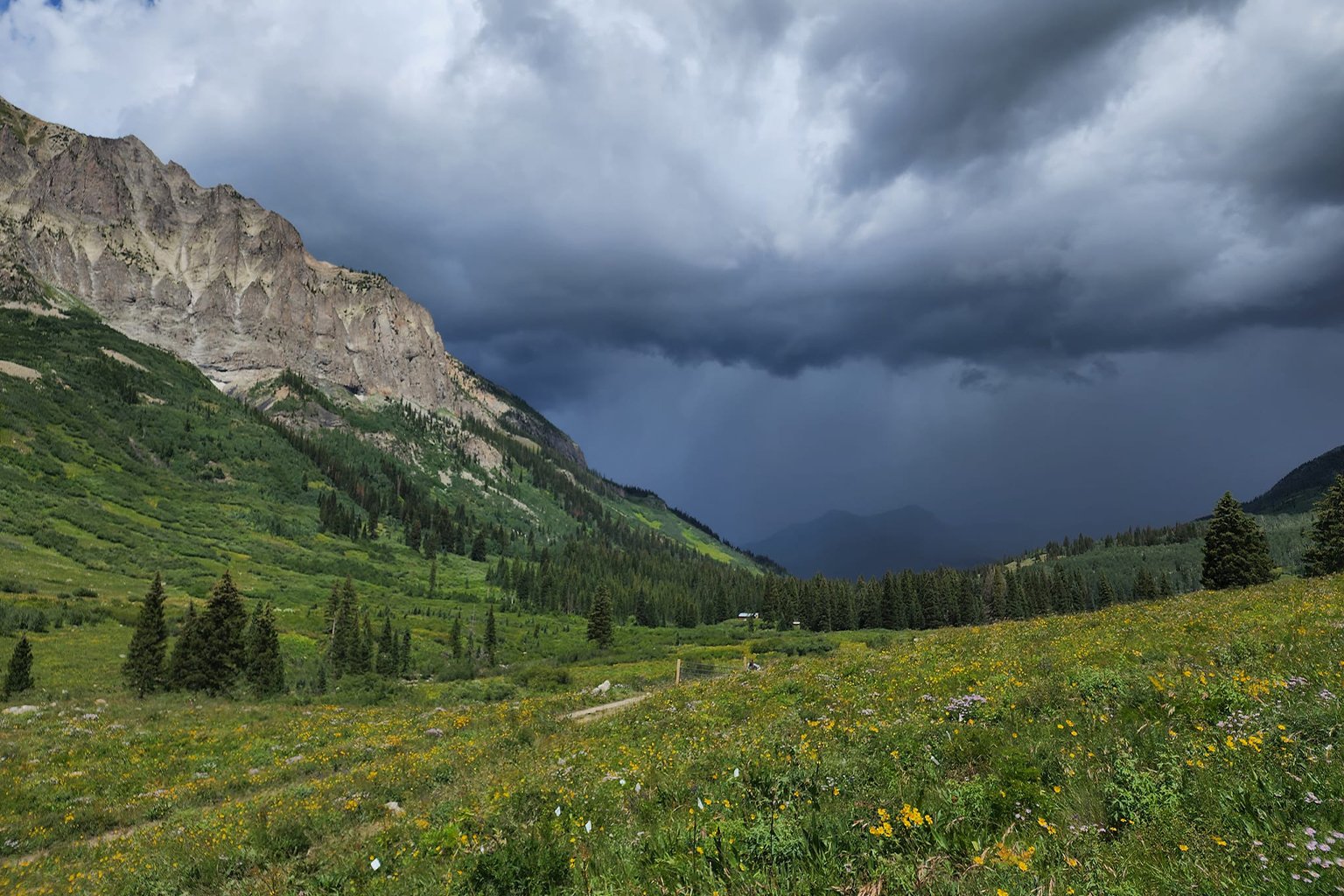
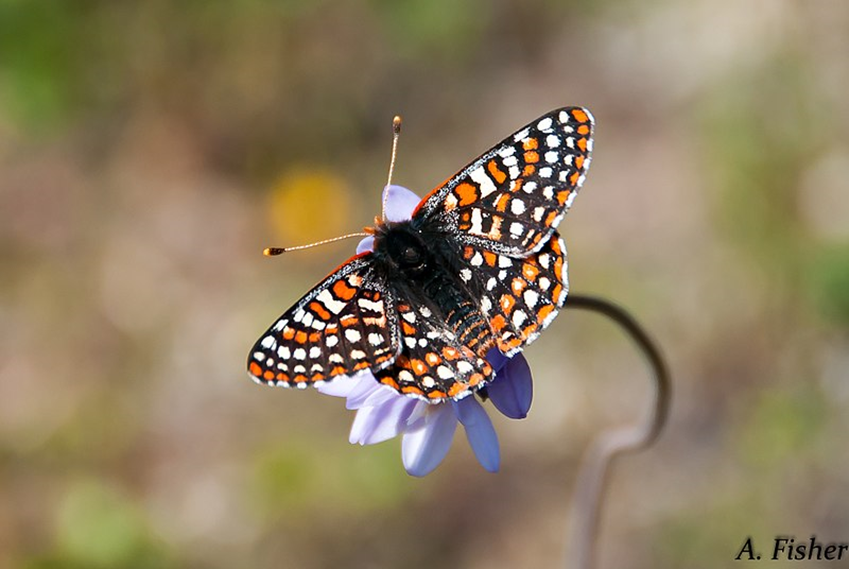
“Changes in climate and weather extremes can have cascading effects on both insects and the communities within which they are embedded,” says Boggs. For example, pollinating insects that are wiped out by drought can leave behind plants unable to be pollinated and reproduce.
And of course, everything is interconnected: The world’s ecosystems, and ourselves, depend on insects for a slew of jobs. They are pollinators, trash collectors and recyclers, natural fertilizers and soil enrichers, pest destroyers, and both prey and predator for innumerable other species. They pretty much underpin most every terrestrial ecosystem on the planet.
So, how do we protect the animals that do so much?
Both Boggs and Harvey say the No. 1 solution is to tackle climate change by reducing greenhouse gas emissions: burning less fossil fuels. In addition, conservation can support insects by protecting and restoring more insect-specific habitat, and reducing or eliminating pesticide use.
“Ecological rewilding programs should not only focus on the restoration of ‘macro-habitats’ that target large animals like deer, bison, wolves and bears, but also on smaller-scale ‘micro-habitats’ like forest understory and meadow vegetation that benefit smaller organisms like insects,” says Harvey. “By doing so we will stimulate entire food chains from the ‘bottom-up.’”
Because micro-habitats are small, people can also help insects at home by providing insect-friendly lawns and gardens (no raking those leaves!) through planting diverse native species that attract insects.
“I am not a big fan of the terms ‘insect apocalypse’ or ‘insectageddon.’ These are largely media constructs. For sure, many insect taxa are declining across parts of the biosphere, and the problem is getting worse, but there is still time to reverse these declines,” says Harvey.
“However, if we continue along the current trajectory, these terms may ultimately be applicable. In this context, all of biodiversity will be under threat.”
Insect decline: It’s one more urgent reason to tackle climate change aggressively.
Banner image: An orange-tip butterfly in India. Image by Amol Mande via Pexels (Public domain).
Related reading:
Insects and other invertebrates on tropical islands face challenges as development and tourism expand
Related reading:
The Great Insect Dying
Citations:
Harvey, J. A., Tougeron, K., Gols, R., Heinen, R., Abarca, M., Abram, P. K., … & Chown, S. L. (2022). Scientists’ warning on climate change and insects. Ecological monographs, e1553. doi:10.1002/ecm.1553
Sales, K., Vasudeva, R., Dickinson, M. E., Godwin, J. L., Lumley, A. J., Michalczyk, Ł., … Gage, M. J. (2018). Experimental heatwaves compromise sperm function and cause transgenerational damage in a model insect. Nature Communications, 9(1). doi:10.1038/s41467-018-07273-z
FEEDBACK: Use this form to send a message to the author of this post. If you want to post a public comment, you can do that at the bottom of the page.





